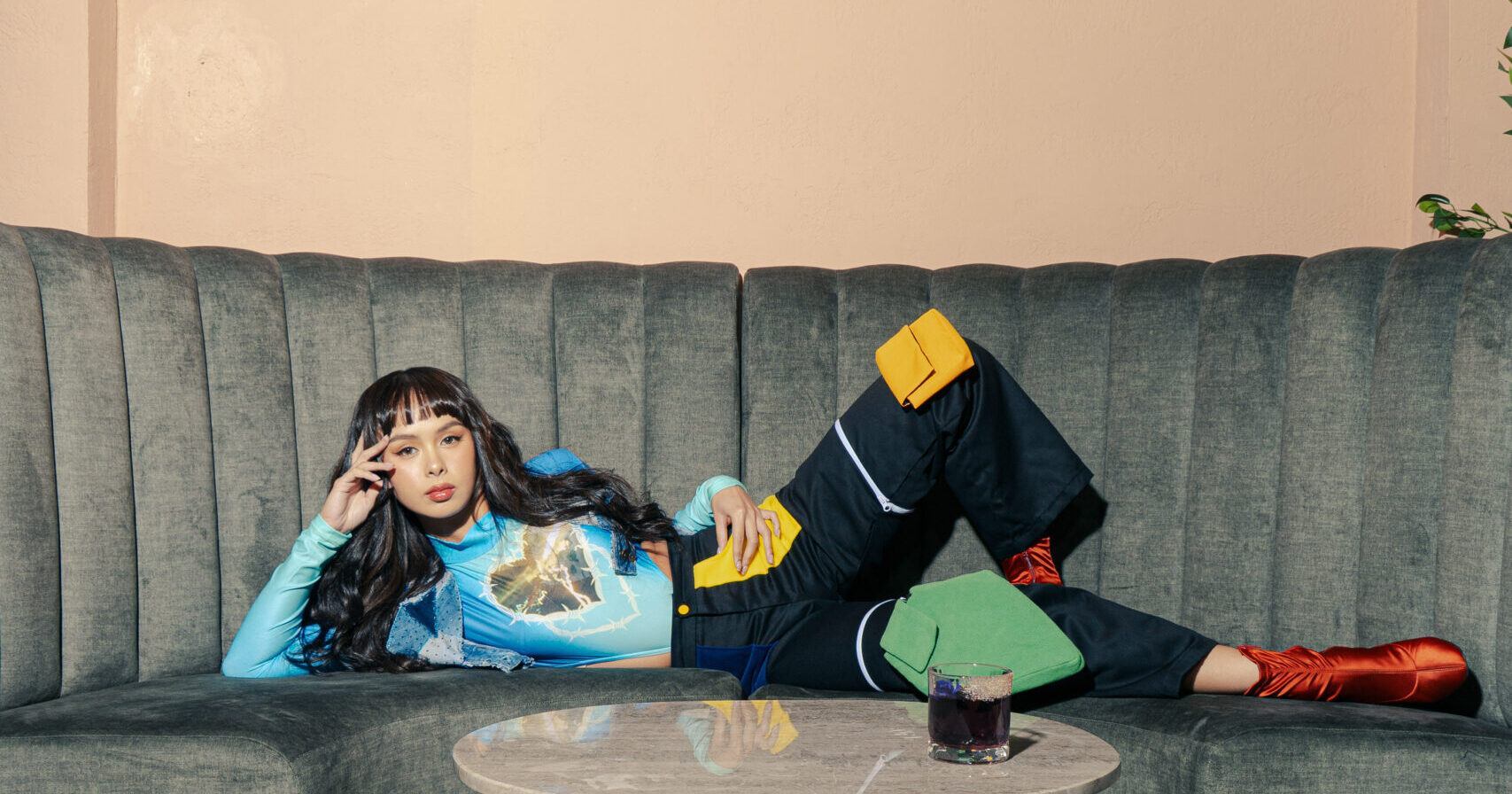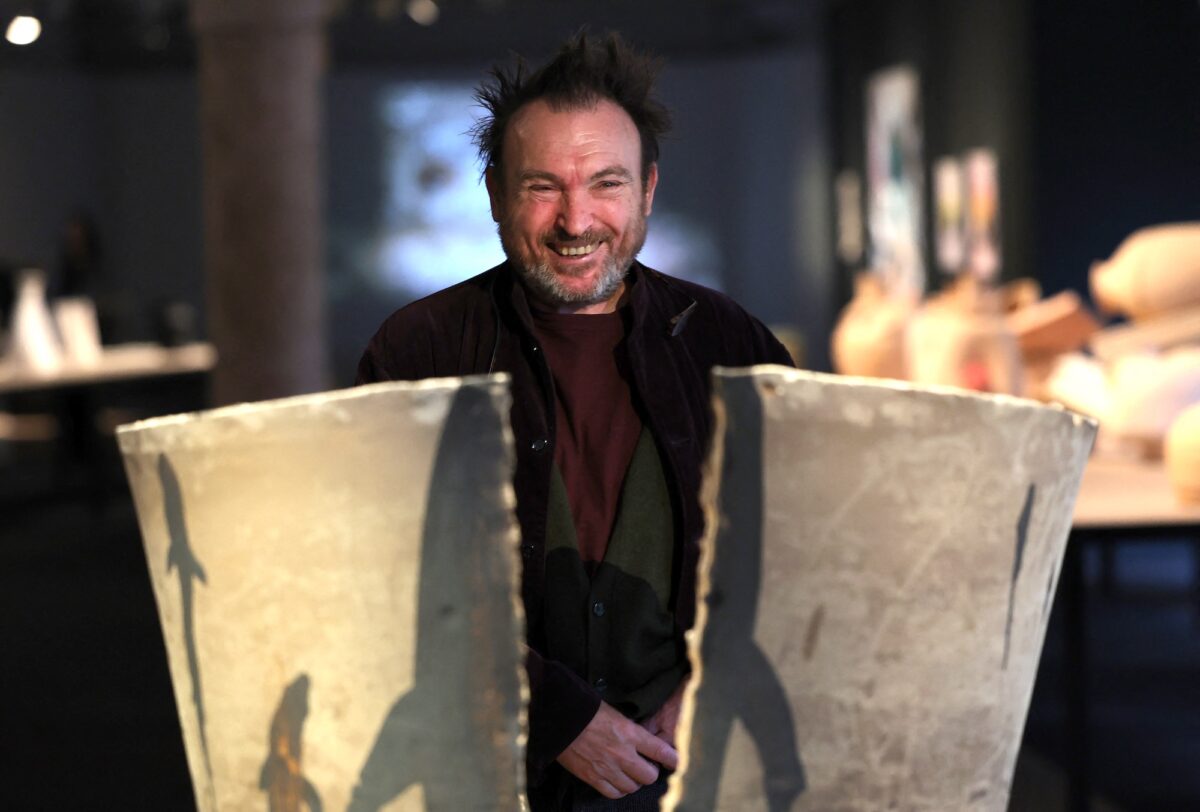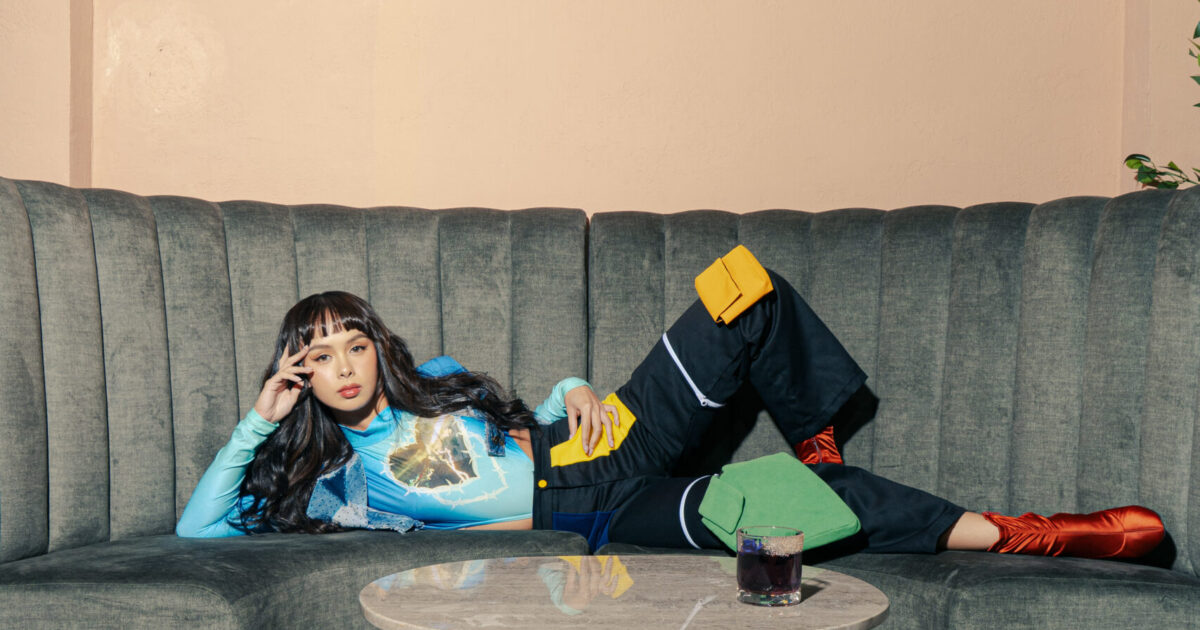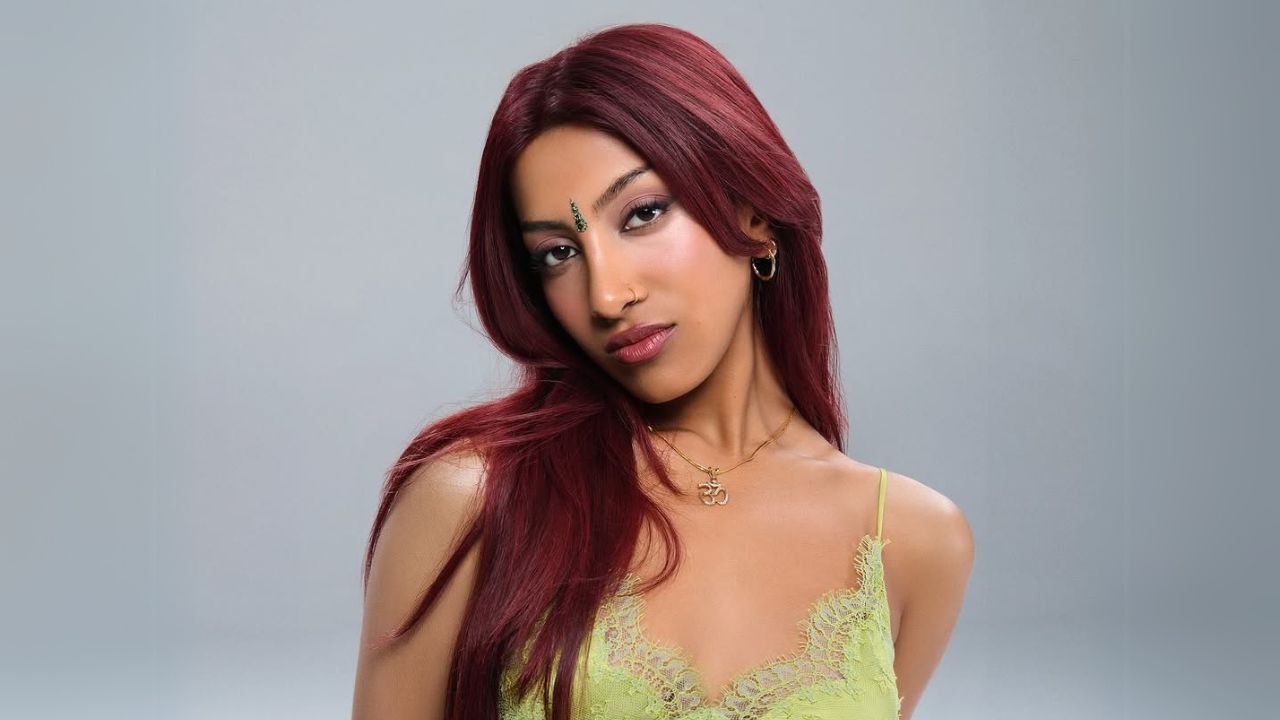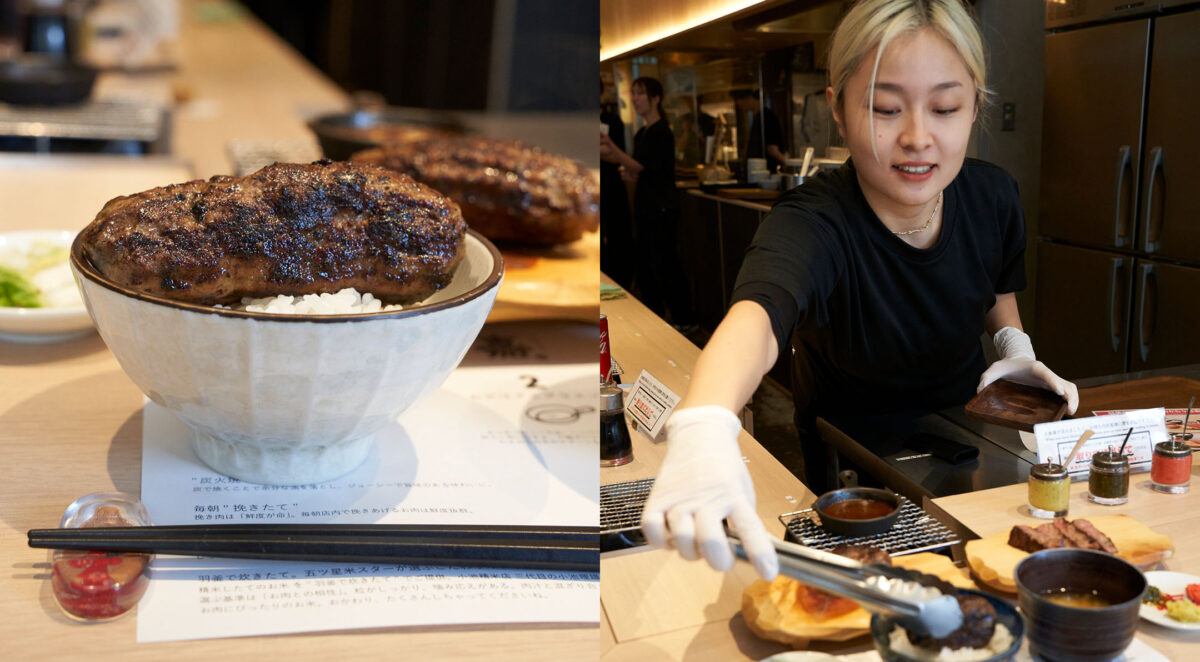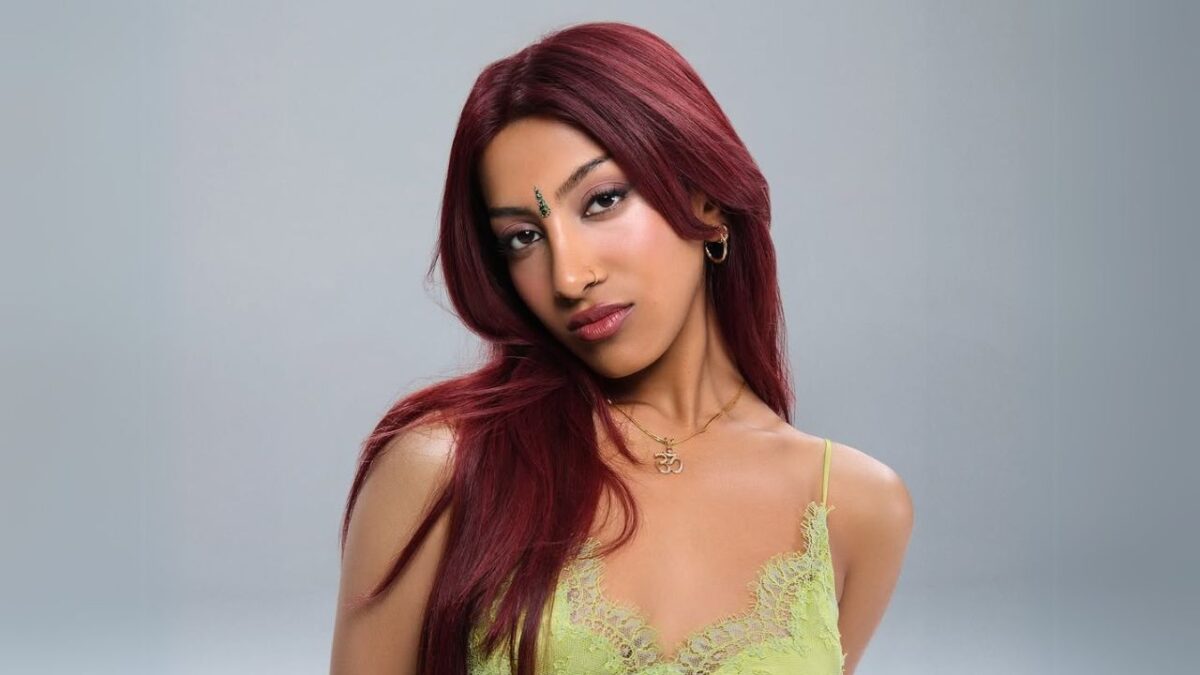The country’s first volleyball film is a specific kind of joy for a specific kind of viewer: girls who probably wouldn’t mind a course correction for an adolescence filled with homophobia and lesbian invisibility
“My works are always a course correction for the adolescence I wish I had,” says Samantha Lee, who makes coming-of-age movies about girls who love girls.
In 2016, Lee made her directorial debut with “Baka Bukas,” whose main preoccupation was the aftermath of coming clean about your feelings for your best friend. Although met with mixed reviews, the Jasmine Curtis starrer put Lee on queer girls’ radar: Finally, a director who seemed bent on telling sapphic stories that didn’t end with either of the lead characters dying or suffering some other tragic fate. An online series and three films later, some considered Lee to be the face of Philippine sapphic media.
Such sensationalist talk partly speaks to the lack of (explicitly) lesbian stories onscreen, but I personally didn’t mind hearing every few years that Lee was working on a new movie.
Last August, she put out “Rookie,” a volleyball film about an awkward transferee and basketball player named Ace (Pat Tingjuy) who, despite never having played volleyball, gets recruited to her new school’s volleyball team, the San Lorenzo Angels. There, she falls for its captain, Jana (Aya Fernandez).
The enemies-to-lovers romance blooms in an all-girls Catholic school, where the insidious sexism and homophobia of religion and patriarchy occasionally reared its ugly head—otherwise, the film is pure queer bliss and sportsmanship and female friendship.
Though far from perfect, it might be the most technically accomplished project yet of Samantha Lee: well-paced, beautifully shot, and consistently fueled by such a palpable dynamic energy, which was most evident in the final volleyball match
Though far from perfect, it might be Lee’s most technically accomplished project yet: well-paced, beautifully shot, and consistently fueled by such a palpable dynamic energy, which was most evident in the final volleyball match. It also helped that Lee understands the rhythm of queer romance. The longing glances and banter punctuating the prolonged charged silences between Tingjuy and Fernandez made for a proper, highly watchable rom-com.
But at the heart of it was a tender feminism. Watching “Rookie” in the cinema was a very specific kind of joy for a specific kind of viewer: girls who lived through the peak of intrams crush culture, girls who probably wouldn’t mind a course correction for an adolescence made fraught by casual homophobic rhetoric and lesbian invisibility.
Making the country’s first volleyball film
One afternoon, the writer Natts Jadaone chanced upon a college volleyball match on TV. The heated exchanges and display of talent would make her a fan of the sport and eventually become the inspiration for a short film idea.
“Two girls on opposing teams communicate with just glances, movement, and swagger. After the final buzzer sounds on the game, they shake hands and part ways. The romantic tension and their yearning are palpable, but they know their love is forbidden,” she writes. Soon, Jadaone’s sister, the award-winning writer-director and producer Antoinette, would ask Lee if she would be interested to direct the story that would soon become “Rookie.”
It happened that Lee had a similar story to Ace’s: She was her high school’s basketball team captain, and when she had to move to a different high school at one point, decided against the school that only had a volleyball team. “‘Rookie’ is what would have happened kung lumipat ako sa school na walang basketball team, tapos forced ako maging volleyball player,” Lee said in a podcast with Antoinette Jadaone.
‘Rookie’ is what would have happened kung lumipat ako sa school na walang basketball team, tapos forced ako maging volleyball player,” Samantha Lee said in a podcast with Antoinette Jadaone
In 2021, Lee and Natts Jadaone’s film was announced as one of the selections for the third edition of Full Circle Lab Philippines, a development program co-organized by the Film Development Council of the Philippines. The year after that, “Rookie” joined the official lineup of finalists for Cinemalaya 2023; capping off 2022, Lee and Project 8 Projects (Antoinette Jadaone’s production company, which co-produced the film with Anima Studios and Kumu), put out a casting call for the role of Ace: “At least 5’6. Plays volleyball. Lesbian/Bi/Queer female. Acting experience preferred but not required.”
Tinjguy, an architect and volleyball camp coach, sent in audition materials after the prompting of a friend. Tingjuy got an audition, where she was paired with Fernandez.
“Fast forward, a month [after the audition], I got a text from Ms. Ava of Project 8 Projects asking if she could call, and she brought me the news saying I got the part of Ace. I was really happy but I couldn’t believe it. I had to ask her “Totoo po ba?” three times in that call. I thanked her and asked again ‘Sure po kayo?’ [laughs] That’s how I got the role.”
It’s hard to fault the first-time actress’s performance. Aided by just two weeks’ worth of acting classes and basketball training, Tingjuy radiated an all-too-familiar awkwardness that slowly morphed into charm, impeccable comedic timing, and vulnerability.
Audiences have called the film simple. It is. But that simplicity is partly deceptive given that it quite inevitably had to cover so many things
In a scene involving a horrifying incident with their volleyball team’s physical therapist, Ace runs out of the school crying in anger and desperation. It’s the first instance in the film where the character is allowed a cathartic moment. In shooting the scene, Tingjuy says: “I was mostly thinking that I didn’t want to be a burden to everyone. The day of the shoot, thankfully my acting coach was there. She would remind me to breathe and recall our workshop. Direk Sam also ran me through the scene saying, ‘Sa part na ‘to dapat parang naghahanap si Ace ng someone na makakatulong sa kanya pero wala siyang mahanap.’ Somewhere along those lines.”
For her part, Fernandez is equally compelling as the talented, brooding team captain. We’ve seen stories like Jana’s many times before—an overachieving, repressed only child burdened by their parents’ expectations—but Fernandez commits to the archetype with such intensity and self-possession you can’t fault Ace for falling for such an obvious choice. It’s also just a classic GL trope at play, and the chemistry between the two actresses sells it so well.
Audiences have called the film simple. It is. But that simplicity is partly deceptive given that it quite inevitably had to cover so many things: the levity of young love and the violence of patriarchy, the kineticism and logistics of the sport. With the film being shot in just nine days, the latter proved to be one of the more challenging aspects that “Rookie” had to get right. Tingjuy says that playing in front of a camera was a “long process” as “there were a lot of technicalities to consider.”
“It’s the hardest thing I’ve ever had to do in my career so far. There’s just so much that needs to be captured in a little amount of time, compounded with the pressure of volleyball being one of the most beloved sports in the country. There was a lot of pressure to get things right,” says Lee, who took a lot of inspiration visually and score-wise from “Haikyu!!” “For the rest of the film, I wanted it to feel like ‘Ribs’ by Lorde,” she adds.
By now, even those who haven’t seen the film yet might have already heard about the cameos of certain Philippine volleyball icons. Ara Galang and Tots Carlos are camp counselors. Alyssa Valdez delivers a speech she wrote herself for the Angels. The sport has obviously always had a massive following, a devotion that arguably reached new heights in the past 15 years because of players like Valdez.
“Rookie” is the Philippines’s first ever volleyball film. Its potential as a story hinged largely on the country’s love for the sport. That it was told via a queer, female-centric film, its portrayal of men either visibly minimal or secondary to the main plot, speaks volumes against the gendering of sports, in its small way reclaiming a space for women in male-dominated spaces.
“As the film’s potential started to take root, my five-year-old niece suddenly told me she wanted to be an athlete. When I asked what sport, she said volleyball, because it’s for girls and basketball is for boys. I then realized how these gendered ideas form at such an early age and questioned if we want to continue perpetuating these misconceptions,” wrote Natts Jadaone.
Queer joy, out in the open, in broad daylight
“Rookie” was one of the big winners in this year’s Cinemalaya, bagging the Best Editing Award, the Best Actress Award (for Tingjuy), and, as with all of Lee’s works, the Audience Choice Award.
“From a very practical standpoint, winning this award is a good way to show producers that films like this can be a good investment and they should continue funding projects like these. That’s the very practical, non-emotional answer. If I were to truly wax sentimental about winning awards like this, I make my films to speak to a very specific kind of audience and to be able to receive that love and appreciation back is the only validation I ever truly need,” says the director.
We’re obviously still at a point where making any kind of queer media, because of its rarity and clear departure from heteronormativity and its institutions, is expected to be either a radical statement (though it often tends to be) or the be-all, end-all of what it is like to be queer.
From Lee’s growing filmography, which is mostly aspirational and specifically attempts to normalize queerness, it seems that one way to complicate the criticism and public discourse surrounding queer narratives is to make (and fund) more of it—quality and intent intact, needless to say.
That, and “hold[ing] cishet people (especially men) up to the same standards just to make the playing field a little bit more equal,” says Lee, who, like any other queer woman filmmaker, on top of the actual work that goes into making films, has also had to think doubly hard about the implications of all their choices, especially when it comes to casting.
“In an ideal world, we would be living in a society where there are tons of out queer actors that we could cast for these roles. But we do not (just yet). There was a recent conversation I had with someone who said that she was a really big fan of ‘Baka Bukas’ and how that film helped her through some tough times in her coming out journey, but she followed it up with ‘are you ever going to cast queer actors for queer roles?’ And I was kind of taken aback by that question in the sense that I can keep casting queer actors for queer roles but the responsibility to make these works known shouldn’t fall solely on my shoulders… I think that a bigger burden should be placed on systems and audiences that still give importance to seeing celebrities on-screen.”
As she makes more films, the necessary compromises inherent in the business of making films are impressed repeatedly on not just queer filmmakers like Lee, but for anyone trying to make “unconventional” movies without any big-name stars. Not surprising. Still, it’s worth saying: A film like “Rookie,” although emerging as the second highest grossing film in this year’s Cinemalaya, could have earned so much more, could have reached so many more audiences.
I wish more queer kids got to witness, besides the collective squealing in cinemas, these positive little inserts that the volleyball film is filled with: Ace’s mom handing her a suit and tie instead of a dress to wear to prom, the Angels cheering on Ace and Jana as they share a kiss on the court, out in the open.
Art by Ella Lambio
Follow Preen on Facebook, Instagram, Twitter, TikTok, YouTube, and Viber





